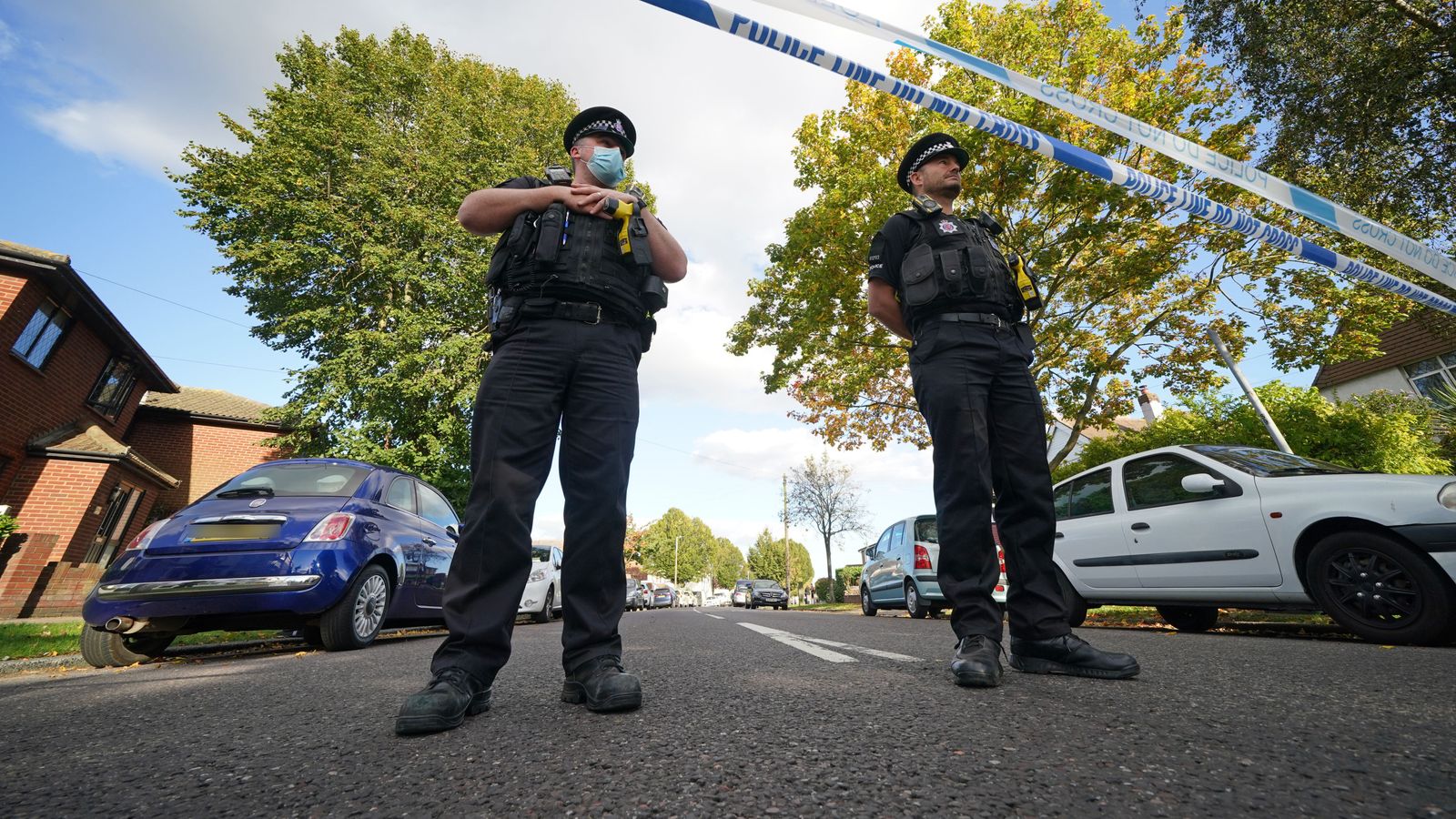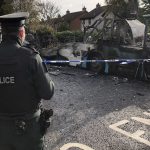Every MP will be contacted today by a chief constable to ask them about any more security arrangements they may require as part of a review into MPs’ safety.
A National Police Chiefs’ Council spokesman confirmed every all parliamentarians will be contacted by Operation Bridger, a nationwide police protective security operation established in 2016, to discuss their security arrangements following the death of Sir David Amess.
The spokesman said: “In light of yesterday’s tragic attack, every MP will be contacted individually by Operation Bridger representatives in their local force to discuss their security arrangements, and to ensure they are aware of all advice pertaining to their personal safety and security.
“They will also speak to MPs about security arrangements for any events they are planning to attend in the coming days, so the appropriate advice can be provided.
“We encourage MPs to immediately report any security concerns to their local police force in order to keep themselves, their staff and members of the public attending surgeries safe.
“Funding is available through the Independent Parliamentary Standards Authority for security needs based on threat assessments made by police.”
It is believed that the police forces will then report back to Home Secretary Priti Patel this weekend.
Sir David Amess murder: Senior Tory MP Tobias Ellwood calls for face-to-face meetings with constituents to be paused in wake of killing
Foodbank fundraising pages launched after senior Tory MP Sir Peter Bottomley called his £81k salary ‘really grim’ on day of Universal Credit cut
China’s ambassador to UK Zheng Zeguang banned from parliament ahead of talk
The review is being conducted as part of Operation Bridger – a nationwide police protective security operation to enhance the security of members of parliament that began after the murder of Labour MP Jo Cox in 2016.
Following the launch of the operation five years ago, many MPs were given fobs that connect them to emergency services and panic alarms that they could place in their homes and offices.
On Friday, Ms Patel confirmed she had asked all police forces to immediately review security arrangements for MPs after the death of Sir David Amess.
Following the killing of Sir David at his constituency surgery in Essex yesterday afternoon, Ms Patel chaired a meeting of police, security and intelligence agencies and also spoke to House of Commons’ Speaker Sir Lindsay Hoyle.
“The home secretary has asked all police forces to review security arrangements for MPs with immediate effect and will provide updates in due course,” a spokesman for Ms Patel said on Friday.
It is understand that the home secretary would like to see security for MPs across the country become more standardised and uniform as currently there is a variation in the level of security various members decide to take out.
At present, most backbench MPs will not have the police protection offered to senior ministers.
Sir David died after being stabbed at a surgery – where MPs offer face-to-face meetings with constituents – in his Southend West constituency in Leigh-on-Sea.
Sir Lindsay also promised to “examine” safety measures for MPs following the killing of Sir David, but cautioned against a “kneejerk reaction”.
He described himself as “shocked and deeply distressed” by Sir David’s death – the second killing of an MP in their own constituency in little more than five years.
“Nothing will stop democracy, nothing will stop us carrying out our duties,” he told Sky News
“Those people who don’t value the job that we do, those people who don’t support us will not win – hence why I’ve had my surgery tonight.”
Sir Lindsay said he would continue to “look at” security measures, adding: “We won’t sit back on our laurels, of course we know the challenges.
“We’ve got to protect MPs and allow them to carry out their duties. The duties that the electorate put them there for – to speak, to meet and to make sure that their views are conveyed to Parliament.”
Pauline Latham, Conservative MP for Mid Derbyshire, told Sky News there was a need to review MPs’ security.
“We can’t be totally protected,” she said. “There will always be nutcases who will try to stifle democracy, there will always be unpleasant people who will try to cause mayhem and we’re no different from any other member of the public.
“But we do put ourselves in a vulnerable position over surgeries.
“Maybe we need more security at places like that where the public know where we are – and so perhaps there should be a bigger police presence supporting MPs.”
Kim Leadbeater, the sister of Jo Cox who is now a Labour MP herself, said that many MPs will be “scared” by the death of Sir David.
“It’s really important that we get good people in public life. But this is the risk that we’re all taking. So many MPs today will be scared by this,” she said.
“My partner came home and said ‘I don’t want you to do it anymore, because the next time that phone goes it could be a different conversation’.”
Ms Leadbeater said that safety was “always on my mind everywhere I go and everything I do” but added she was “really well looked after by the police”.
The amount of money spent protecting MPs rose substantially following the murder of Jo Cox in June 2016.
Accounts from the Independent Parliamentary Standards Authority showed MPs spent £2.5m on security in 2016/17 – up from £170,000 the previous year.
The murder of Jo Cox came six years after Stephen Timms was stabbed twice in the stomach at a constituency surgery in east London.
In January 2000, Andrew Pennington died while saving the life of Cheltenham MP Nigel Jones when they were attacked with a Samurai sword.






















